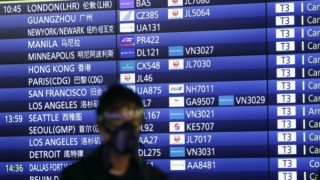Loading
Search
▼ Japan To Ease COVID-19 Entry Ban To Allow Long-Term Stays From Oct.
- Category:Other
The Japanese government is considering allowing more foreigners to enter for stays of three months or longer beginning in October, sources with knowledge of the plans said Wednesday, significantly easing travel restrictions meant to curb the spread of the novel coronavirus.
Around 1,000 foreigners would be granted entry daily under the eased restrictions, with increased virus testing capacity at airports to accommodate them, the sources said.
Tourists will still be barred from entering Japan, which has imposed an entry ban for 159 countries and regions, with foreigners who have been to these areas within 14 days of their arrival being turned away.
The government has begun gradually rolling back the travel restrictions, with foreigners with residential status in Japan who had traveled outside the country being allowed back in from September.
Businesspeople have already been allowed to come from some Asian countries including Vietnam and Thailand under certain conditions, including providing negative COVID-19 test results, and foreign students on government grants can also enter the country.
According to the sources, the government plans to greatly expand the scope of people who are exempt from the entry ban from October, with foreign students who are not on government grants, medical staff, athletes and those participating in cultural activities among those to be allowed in.
Chief Cabinet Secretary Katsunobu Kato, the government's top spokesman, said Wednesday that Japan has so far managed to partially resume travel without triggering a resurgence in coronavirus infections, and that "serious consideration" will be put into easing the restrictions further.
Japan has seen more than 80,000 infections with a death toll of over 1,500, significantly less than hard-hit countries such as the United States, which is nearing 7 million infections.
The government has been ramping up the number of polymerase chain reaction tests that can be administered at Japan's three largest airports -- Narita and Haneda, serving Tokyo, and Kansai, serving Osaka -- and will now shift its focus to New Chitose near Sapporo, Chubu near Nagoya, and Fukuoka airport, the sources said.
- September 23, 2020
- Comment (0)
- Trackback(0)


